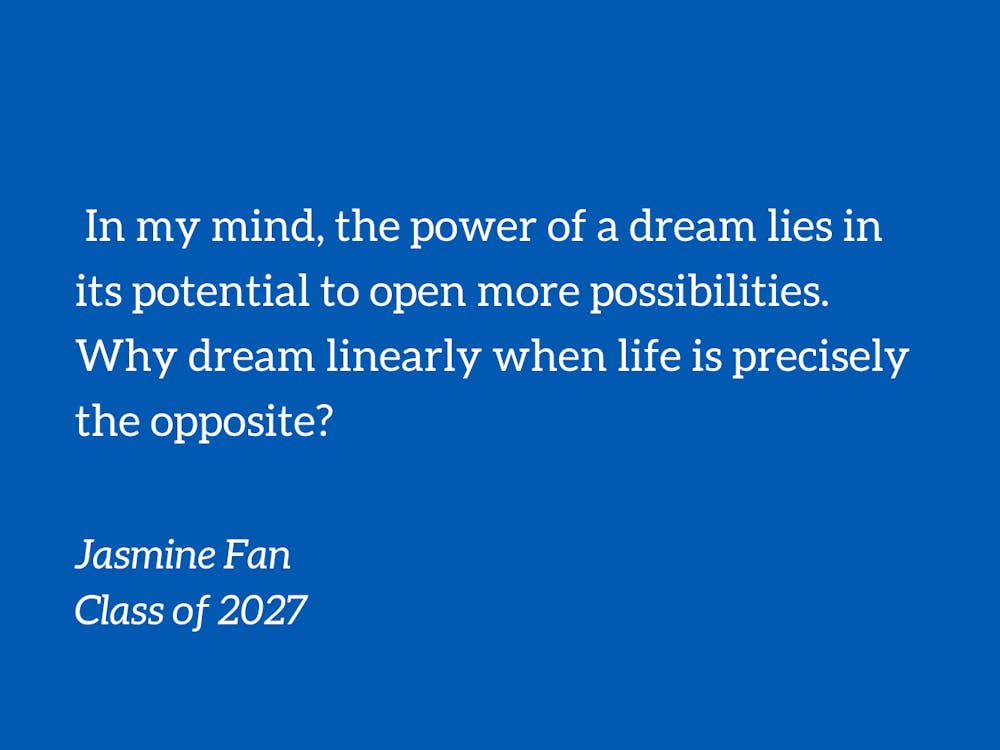I grew up a huge WWE fan, especially of women’s wrestling. As a kid, I scoured the internet for WWE matches. I practiced pull-ups on a bar that hung in my bedroom doorway. I would even force my sister to let me attempt different choke holds on her.
I was a little girl with a big dream: Someday, I would become a WWE Superstar.
One night, I proudly announced to my parents that I was going to "follow my dream." They nodded and smiled — that is, until I revealed my plan to drop out of middle school, audition for WWE, and become a pro wrestler.
My mom was absolutely horrified. My dad, on the other hand, took the more rational approach. He sat me down and explained that if I wanted to become a WWE wrestler, I would have to be in the top 1%, maybe even 0.1%, of wrestlers to even have a chance at supporting myself. On the other hand, if I graduated college with a CS degree, for example, I wouldn’t have to be the best programmer to land a stable job. Though my dad’s reasoning seemed logical, I felt he didn’t have enough faith in me. Why couldn’t I be the one who defied probability? Why couldn’t I be the 1%?
As I grew older, however, I began to examine my childhood dream more critically. What if my dad was right? Reflecting back on this experience has forced me to challenge the framework of following your dream. There are a few hesitations I have with this belief.
First, the success stories of a few can be misleading. In my case, I was only aware of the WWE wrestlers who made it on TV. But what about the 99% who tried and failed, the wrestlers who never made it onto my radar at all? I had fallen into the trap of survivorship bias, noticing only the glittering success stories and ignoring the rest. My perception of the American dream was an echo chamber of success stories, built upon the minority who were able to beat the odds.
Success stories are also subject to hindsight bias. It’s much easier for the Mark Zuckerbergs and Steve Jobs of the world to encourage others to drop out of college and follow their dream. They’ve already made it. But would they have the confidence to proclaim it before they became successful? What about if all their entrepreneurial efforts had failed? Probably not.
I’m not saying we should allow probabilities to dictate our lives. We shouldn’t. At the very least, however, we must recognize how these biases distort our perceptions of reality.
Another concern I have with following your dream is that it’s a uniquely American privilege absent from many other countries without certain liberties. In fact, even in the U.S, it doesn’t exist for everyone. Because of familial obligations, health reasons or other extenuating circumstances, many don’t have a safety net to fall back on. As a result, when passion clashes with practicality, they are forced to prioritize the latter. Chasing your dream is a luxury not everyone can afford.
But that’s not even the worst of it. Following your dream actually closes more doors than it opens. I had become so fixated on my wrestling dream that I shut down a myriad of other career paths. Yes, I wanted to become a WWE Superstar, but it was more so that I wanted to feel strong, empower others, challenge myself mentally and physically, and perhaps let out some of my inner twelve-year-old rage. Those were my true underlying aspirations.
There are countless avenues to pursue these aspirations. If I wanted to challenge myself mentally and physically, I could’ve expanded my dream to include various other sports and pursued them as hobbies instead of full-blown professions. If your aspiration is to help others, for example, becoming a doctor is certainly not the only path. You could become a teacher, coach, mentor, volunteer … (the list goes on). In my mind, the power of a dream lies in its potential to open more possibilities. Why dream linearly when life is precisely the opposite?
Before following our dreams, we must first reframe them to align with our inherent aspirations. Dreams should define who we want to be, not what we want to be.
I dream of becoming a leader, an advocate and a better person. I hope to help others around me. I aspire to become more like the people I love. These are the kinds of dreams unaffected by biases, accessible to all and expansive in possibilities. These embody the person I strive to become.
I know you’re out there probably busy chasing your dream, and I’ll let you get back to it. But before you carry on, take a moment to pause and reflect on your current dreams. Do they open more possibilities? Do they align with your aspirations? Do they truly represent who you want to be?
Jasmine Fan is a Trinity sophomore.
Get The Chronicle straight to your inbox
Sign up for our weekly newsletter. Cancel at any time.

